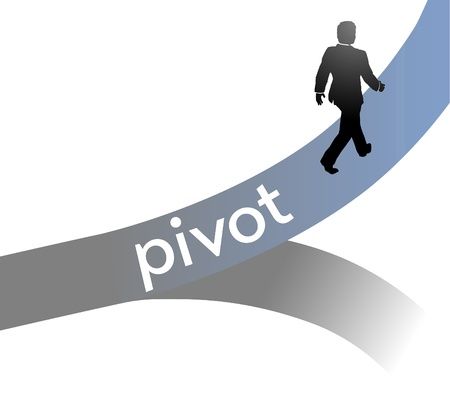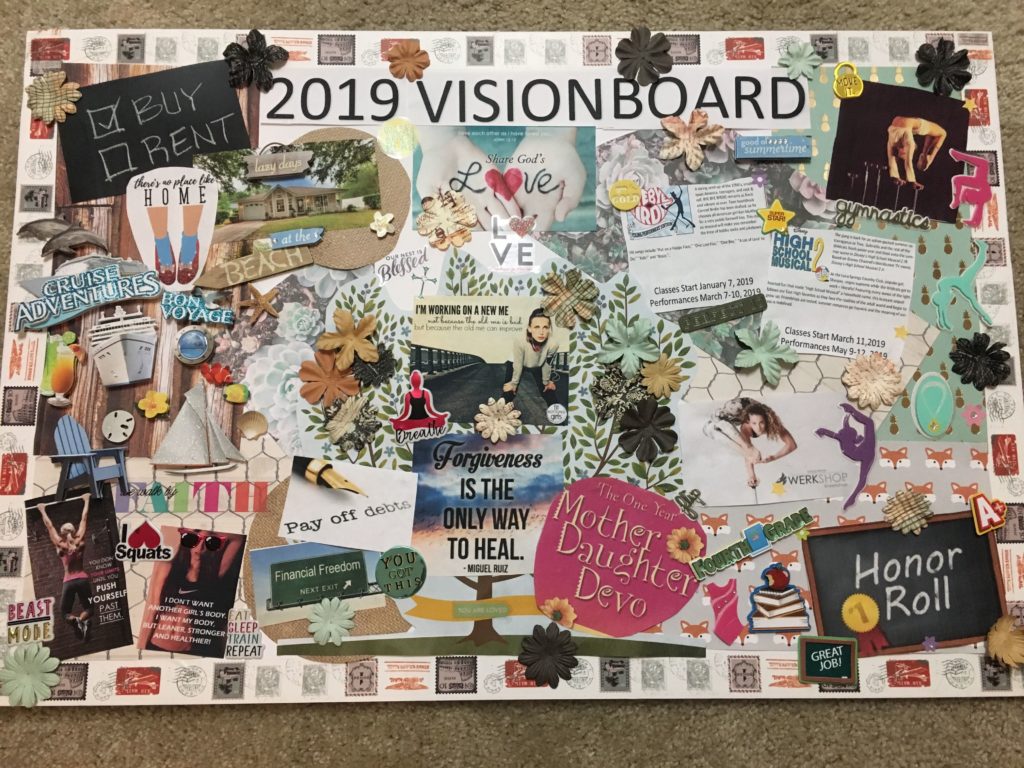How To Change Careers during the COVID-19 Pandemic

The current pandemic forced many of us to be in quarantine for quite a while. Has the quarantine given you the time and space you needed to reflect on your life and career? Have you started considering a career pivot? If the answer to these questions is ”Yes”, then keep reading.
First of all, I would like to acknowledge your courage for taking the decision to change your life for the better through your career. Change is not easy, regardless of the area of our life; and when it comes to your career, it’s of high importance if we take into account the fact that we spend at least 1/3 of our life at work! And there are 2 main strategies for you to change career effectively: 1) Foundations 2) Realization
Before diving into these strategies, I do assume that you’re crystal clear on the career path you want to take. There is no reason to apply any strategy without having clarity on what you want and what you would love to do. To put it differently, there’s no point to buy the best boat and hire the best crew if you don’t know your destination yet. If this is the case for you, then I would strongly recommend you to read the previous article on ”How To Find Your Dream Career during the COVID-19 Pandemic”. Otherwise, let’s kickstart:
A) Foundations
Before we go to the Realization part, which is focused on equipping you with a realistic career transition plan, it’s important for you to be in the right state of mind for you to be able to apply your plan. Because if information was all you needed, then you, and everyone, would be wealthy, healthy and happy! The key word here is implementation; and Foundations is the strategy on how to apply your career transition plan. They comprise the following parts:
1. Adopt Your Success Habits
The biggest part of our daily activity is monitored by our subconscious mind (95%-97% of our activities). This means that for most of our time in the day we don’t act and think consciously, but unconsciously, in an automatic, default mode. Typical examples are driving, getting dressed, eating, brushing your teeth. We don’t think how to do any of these things. We just do them! Why is this info important? Because you are what you do. Day-in, day-out. That is, you are your habits. So, your habits do affect and determine your emotional state and the way you think. That’s why you need to establish the habits that will make you productive and physically, emotionally, mentally, and socially resilient. This way, you’ll be well-prepared and ready for any challenge in your life, including your career transition challenges. Because you need to be both productive and resilient for a faster and more effective career change. Here are the 4 main success habits categories, along with a few habits for you to start adopting:
a) Physical
Our physiology, our body, affects our psychology. So, make sure you keep yourself on a great shape. You can exercise in any way that works for you, whether it’s sports, walking, dancing or doing yoga. Besides that, nutrition has a direct and powerful impact in your body. Sugar food, or high-carbs food in general, spike your blood sugar and increase your stress hormones levels, such as cortisol levels. Yes, eating sweets can make you feel stressed! Of course, you and your body are unique, so what spikes your blood sugar does not mean that spikes the blood sugar of other people. That’s why you should look for professional advice to create and establish the kind of diet that works best for you. That is, eating healthily without sacrificing pleasure! Both exercise and nutrition can tremendously increase both your focus and happiness levels (by helping you produce ”happiness hormones”, such as endorphins).
b) Emotional
You can do a few specific activities that will set the pace for the rest of your day in a quite positive and empowering way. Meditation, prayer and practicing gratitude (you can keep a gratitude journal and write down 3 things you’re grateful for every day) can have a tremendous positive effect in your life, and your career; because, whether you admit it or not, our personal life has a big impact on our professional life, and vice versa. Why? Because you are the one and the same person. You, as human, you are whole, and greater than the total sum of the roles you play in your life.
c) Mental
Staying sharp and acquiring new knowledge and skills is crucial for your career transition, especially in times of chaos, fear and panic. Reading books that can help you to get new insights and empower you to achieve your career transition can make a huge difference in your mental resilience. Writing or active learning (e.g. learning a new language, attending a personal/professional development seminar/program) will boost your alertness and sharpness, which will help you deal with challenging situations smoothly and effectively. This is the power of knowledge and of putting it into practice.
d) Social
As Aristotle said, ”Man is a social animal”. This quote is more true now than ever before. Make the most of the quarantine and social distancing by leveraging the power of the internet. Connect online through groups, blogs, forums, communities and social media with people who can support you on your career transition; people who have achieved what you want to achieve; and people who are your role models and who can be your ideal mentors to guide and encourage you during your challenging career change journey.
Besides that, share your intention to change career with as many people as possible (I don’t mean your employer necessarily). If you want, publish your intention on social media and use every social interaction as a unique opportunity to let the world know about your plans. Why? Because some people will be willing to support you, whether directly, through their experience and expertise, or indirectly, by introducing you to someone else who could support you directly (or to someone who could introduce you to someone who can support you directly!). Yes. This is the real power of leveraging your personal and professional network.
Will everyone be willing to help you? Of course not. In fact, the majority of people won’t, because people have expectations for you, whether it’s your family, friends or society, and because when you try to do something different, they feel uncomfortable. Because change itself makes us feel uncomfortable. A feeling of jealousy is also in the game for those who don’t take full responsibility for their own life, trying not only to blame others for their problems, but also to hold others back in the same level of inertia, their level.
On the other hand, people’s opinions cannot have an impact on you if you decide so. The bottom-line here is that the more you share your intention for your career change (and any goal of yours) the more likely is for you to find more people and resources that can well serve you and your goals.
2. Be open and receptive: You don’t know what you don’t know. The more open and receptive you’re the more new things you’ll learn, the more new perspectives you’ll have, and the more new ways and career transition strategies you’ll discover. You might have a specific role, job or business idea in your mind right now, and it’s ok! On the other hand, in the majority of cases, the specific career path that you consider does not mean that it’s the best or/and the only one for your career success and fulfillment. In fact, there are always better options you are not aware of. This does not mean that you should be paralyzed by your research and need to discover as many options as possible, so you can make the best possible decision. It does mean though that it’s important to be open to opportunities that can better serve you, even if they might be slightly different from what you’re looking for. This brings me to the next point:
3. Be curious:
” I know only one thing: I know nothing” – Socrates.
If you believe you know everything about yourself and how to make a successful career change, then you automatically close the doors to any new insights and opportunities for your career and life in general. Be humble, and stay curious for everything and everyone around you. Because we can also learn many things for us and strategies that better serve us by learning more about others and the world.
4. Focus on Yourself
Take 100% responsibility for your words and actions. Stop blaming and complaining about things that are out of your control, such as politics, economy, natural disasters, the weather, social phenomena, like unemployment and poverty, and other people’s beliefs (you cannot manipulate them).
On the other hand, focus on the things you CAN control, such as your state of mind, your beliefs, thoughts, feelings, actions and behavior. Yes, you can choose how to feel about anything and any situation. You’re the only person in charge of all the above. So, focus on the resources that can help you pivot your career in a faster and more effective way.
5. You are Naturally Creative and Resourceful
That’s right. You don’t have to be an artist to be creative. Because creativity is intrinsic to us by our very nature as humans. In fact, it’s a skill we can all develop. For the simple reason that all of us have imagination. Because creativity is imagination into practice. All of us can express our feelings through our imagination. And you don’t have to write a book or a song, dance or paint to express that. Anything that you do by using your imagination is a product of your creativity; from cooking and knitting to coming up with a good joke and playing chess and board games.
Why is this important? Because I want you to know that you have the answer to any problem, hardship and challenge of yours in your life. You just need to get back into yourself and ”dig the solution out”, and then surround yourself with people who can support you. So, make sure to fully leverage your intrinsic resourcefulness to come up with new ideas and approaches to land this dream job or capitalize on your business idea.
6. Be Aware Of Your Limiting Beliefs
If you really want to change career successfully, whether you’re an entrepreneur or an employee, you need, first of all, to change your mindset. By ”mindset”, I mean not only the way you think, but most importantly what you believe. The difference is that your beliefs are ”stored” in your subconscious mind, whereas your thoughts, wants and wishes are manifested through your conscious mind – the prefrontal cortex, which is the part of our brain that’s responsible for reasoning, analyzing, and rational thinking. Why this difference is important? Because 95% – 97% of all our daily activities are monitored by our subconscious mind. That means that for most of the things we do, we do them automatically, in a ”default mode”, such as eating, dressing, and driving.
How’s this relevant to your career pivot? Because every and each of us have our own beliefs, which are in our subconscious mind. These beliefs can be beneficial or harmful for us. For example, a beneficial belief is that ” I can do work I truly love and be highly rewarded”. On the other hand, a limiting belief is that ”Work is only for me to make a living”. This way you eliminate the chance to do what you love while making a living.
Other limiting beliefs that might have stopped you so far to find your dream career are your personal biases. For example, you might believe that you’re too young or too old to start your own business or land your dream job . Or, you might believe that you cannot make this career change because of your gender, sexual orientation, race, nationality, political, religious or social beliefs.
The problem is that we’re not conscious of our limiting beliefs because they take place unconsciously! That’s why you need to make sure that you really believe that you can change career successfully.
What are your limiting beliefs? What unconscious statements in your mind hold you back from pursuing your dream career? Ask yourself this question:
”What are my limiting beliefs?”
Then, create a list of all of them, regardless of their relation to your career.
Because those that seem irrelevant to your career can actually affect your career transition too. A typical example is the belief that our parents used to tell us: ‘‘Do not talk to strangers”. Although they said this to protect us, the side effect here is that we don’t feel comfortable with talking to and getting to know strangers. Now remember this: In business and the job research, it’s all about who you know, not what you know. Because all of us have a specific skill set and our own unique talents, but not everyone likes and trusts us. Because we, as humans, work with people we like and trust. For you to do build rapport and trust with others, you need to develop your communication skills.
7. Give Yourself Permission
You need to give yourself permission to make a career change, find your dream career and make a living at what you’re really passionate about! Remember that the permission has to do with impacting your subconscious mind; by using the power of your conscious mind. So, grab a pen and paper and write down now the following statement:
“I, (your full name) give myself full permission to:
- Be myself
- Change career
- Find my dream career
- Make a living at my passions
- Keep an open mind
- Fail as much and as fast as possible
- Succeed”
Then, sign and post it in a place where you’ll be seeing it as many times as possibles in the day. For example, you can take a photo and set is as screensaver on your phone and as a desktop pic on your PC, post the note on the fridge, your bedroom and office wall etc).
Besides that, read this statement aloud with confidence and certainty every time you look at it. Voice has a direct impact on our subconscious.
As for the failure part, I want you to know and remember this: Failing does not mean that You are a failure. Nothing and nobody can define your value as a person but you. And only you. Failing is just a specific strategy that didn’t work for you. And you do need to give permission to yourself to fail, because most of the new things you’ll try out won’t work. This is the rule in life and at work. Because they’re new to you and because you’re unique and one of a kind! That is, there are no ”one-size-fits-all” solutions. You need to customize everything to yourself. Besides that, failing is valuable learning. Because you have the opportunity to reflect back on the experience, this time emotionally unattached and with pure reason, and see what didn’t work and what you can do to improve yourself and your approach.
Why is this important? For the simple reason that changing career and making a living at your passion is a bumpy ride, along with all the obstacles that come with it;
8. Create Your Vision Board

A vision board is a board where you post and collect any material relevant to your vision in a specific area of your life (career, free time, personal relationships, health, personal growth etc.). In this case, I want you to imagine how your dream career looks like. Your ideal career, without any restrictions! That’s why it’s a vision board. A vision is big and audacious. How do your ideal colleagues, cash flow and compensation, workplace, work schedules and daily tasks/projects look like?
Once you are crystal clear on them, find or create relevant pics and material on them (real or imaginary). Write down on every pic a deadline for its completion. For example, you can find a pic of a contract on Google and you can edit it to look like your ideal contract, as the beginning of your new dream career. Then write below a deadline, e.g. ”by 29/11/2020”. Then, post the pics on a board. This is your vision board!
Regarding the value of a deadline, it is well proven that once you put a deadline, you increase the chances to actually achieve your goal by 99%. Why? Because you keep reminding to yourself and your subconscious mind the importance of this goal. And this brings me to my next point on how to use a vision board:
Every day, at least twice a day, first thing in the morning and before you sleep at night, go through your vision board. And here’s the most important part: Imagine how the images you see would be in reality (visualization), and how it would make you feel. And feel all the feelings that accompany this goal and experience. Why? Because this way you’ll leverage the power your Reticular Activating System (RAS). It’s a network of neurons located in the brain stem that project anteriorly to the hypothalamus to mediate behavior.
Have you ever found out for the first time some new information about something you were looking for, although you had access to this info all the time? For example, finding out for the first time many travel agencies in your neighborhood, although they’ve always been there! What changed is that you decided to go for vacation after a long time..
How’s this relevant to your goals? It’s exactly the same mechanism that can help you to achieve any goal you wish, including making your career pivot happen, landing this dream job or capitalizing on your ideas. Imagine RAS as a supercomputer that tracks and collects 24/7 all the necessary info you need to achieve what you want. And for you to fully leverage it, you need to leverage the power of your subconscious mind. And you can do this through images and powerful positive emotions. That’s why you need to both review your vision board and feel what you would be feeling as if your goals were already achieved. And the best times to do this is when you’re relaxed. Why? Because you can memorize important info you need (images and feelings) when you store them into your long-term memory. And the best time to learn is when you feel relaxed. And when you wake up and before you go to bed, you feel relaxed thanks to your ”Alpha brain waves”, a specific brain waves frequency category relevant to the ”level of your relaxation” if you wish.
So, use your vision board to visualize your desired outcomes along with the emotions accompanying them, for you to use your intrinsic resourcefulness, and brainstorm new ideas, solutions and strategies that can best serve you to accelerate your career change!
B) Realization
Now that you have well established your ”Foundations”, it’s game time. It’s time to create an actionable fast-track career transition plan, and start applying it immediately. Here are the steps you need to take:
1. Schedule the time for your success habits
I know that adopting new habits can be overwhelming. That’s why I want you to create an implementation plan, where you’ll start with just one habit, and then you’ll add on a new one every week. What can really help you here is to:
a) Schedule a specific time (and place if possible) in your morning routine for the first habit you want to apply and
b) Add this habit on an existing one (e.g. You can start chatting with 5 people/day to let them know about your career pivot decision after you take your breakfast/brush your teeth/wash your face etc.). At the end of every week, schedule the time for the implementation of the next new habit that you want to adopt. At the beginning, it’s important to be consistent on a daily basis. For how long? That depends on your personality, as well as on the level of difficulty to adopt the habit you want to adopt. It can vary from 21 days to 18 months!
2. Find the Skills/Qualifications You Actually Need
Once you schedule your ”habits time”, then you need to make your research on the skills and/or qualifications you might need to make this career change happen. There are 2 criteria that can really help you here:
a) The minimum legal requirements (professional license, other required certificates, training, accreditation). Yes, we do want you to be legal in what you offer! On the other hand, you don’t have necessarily to go to College, have a Master’s or a PhD degree to pursue the career you love. Although that might be the case in some professions, where quite specialized knowledge is required (e.g. doctor, lawyer), in the majority of jobs you can cover the gap of your knowledge by attending relevant seminars and training. What’s the difference? You save more time, money and energy.
b) The skills/qualifications that make you feel confident about the quality and delivery of your services
Not everyone needs a degree from Harvard to believe in themselves. Some people do, others don’t. You don’t need to study business management and administration to start your own business. It comes down to one key word: Confidence. Now, how you’re going to build it in a way that will make you feel comfortable to deliver your services to others is a question that only you can answer.
Do your research on the above. Give yourself one week. No less. No more. It’s enough time to gather the basic info required for you to kickstart your transition. Set a deadline (specific date and time) for the completion of your research. Otherwise, you might end up searching for much more time than required. That is, procrastination; one of the main reasons why you and many people have not changed career yet. One week is enough to gather the minimum info required for you to proceed to the next step:
3. Acquire the Skills/Qualifications you need
Once you clarify what skills and/or qualifications you might lack to change career, it’s time for you to start acquiring them. How?
a) Set an one-week deadline to come up with at least two ways that can help you start building the skill set you’re missing. A few examples are:
• Volunteerism
• Internship
• Free work offer
• Training/seminars
• Educational material (books,podcasts etc)
• Any other possible ways (be creative here!)
Pick up at least 2 of the above ways; the ones you believe that will make you feel confident enough to deliver the services/product you want.
b) Set a skills/qualifications acquisition starting date
Set a specific two-week deadline by which you’ll have already started at least one activity that can help you acquire the skill set you need. Whether that is enrolling to an online course, volunteering, starting a part-time job or learning any knowledge that can support you in getting the requirements you need to change career.
4. Schedule Your Career Transition time:
If you truly want to make this happen, you do need to set some time aside for it. You don’t have to quit your job and be full-time into this (unless it’s the only thing that can make you be committed to your career change, which was exactly my case). You cannot increase the time of hours available in a day, but you can prioritize and manage your time accordingly. In the evenings, weekends, your free time or any time you don’t work, you can take some time for your career transition. Whether it has to do with acquiring the skills and education required, or with looking for, finding and building rapport with people who can support you on your career change journey. They can be mentors, decision-makers or people who love to bring people together (connectors).
Besides that, you can also shift from full-time to part time or at least reduce your working hours in order to have more time for planning and executing on your new career. Whatever is your current situation right now, and regardless of your personal and professional obligations, you can always find some time in the day for your dream career and for a better future. Your future.
So, schedule a minimum amount of time per day/week you’ll be devoting to your career transition. If it’s 15, 30, 45 minutes or 1, 2, 3 or more hours, it really depends on how fast you want to make this change happen. Evaluate your situation and your needs, and act accordingly. The ideal career transition plan is no more than a plan that fits well in your personal goals, needs and daily life.
5. Take Action Now!
Feel free to connect with on LinkedIn at https://www.linkedin.com/in/jim-panos



One Comment